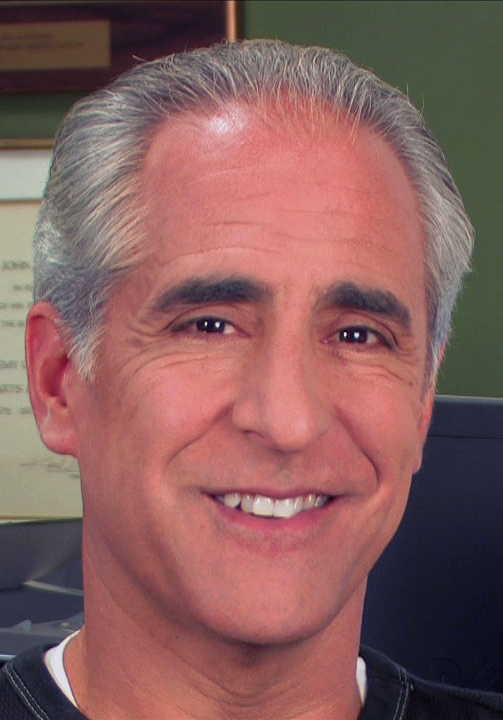In a recent survey, 80 percent of marketers agreed that when they added video to their website, it increased the amount of time visitors spent on the site. Clearly, video can have huge benefits when it comes to converting potential clients.

There is one caveat: if you’re going to invest in video, professional filmmaker Richard Clayman says you must do it the right way. Richard leads Cloudwalker Videoworks based in Los Angeles and is an expert on developing marketing videos for professional service firms. He joined the Law Firm Marketing Catalyst podcast to answer our questions about using video as part of a marketing strategy. Richard’s key takeaways follow below.
- Why do I need videos on my law firm’s website?
The vast majority of consumers start their search for an attorney by gathering three or four referrals, then going to each firm’s website to learn more. Which means that there’s a lot riding on “about” pages and attorney bios. Based only on some words and photos, potential clients will decide if you seem trustworthy and someone they want to work with.
Videos help make this first impression more meaningful and dynamic by giving clients the opportunity to see you in action as yourself (with a bit of editing so you look and sound your best). Essentially, videos function as a first meeting, and they make clients feel as if they already know you when they walk in the door. This is much more impactful than a headshot and a few paragraphs about your career history.
If someone watches your video and decides not to contact you, no harm, no foul. In fact, it saves you time in the long run because you’re not meeting with prospects who ultimately aren’t a good fit. What happens more often, however, is that videos do convince prospects to reach out — and since videos create a sense of familiarity, the initial in-person consultation effectively becomes the second meeting. Clients have already decided they want to work with you, and they’re ready to get down to business once you meet.
- What’s the best way to present myself in a video?
Thankfully, you don’t have to figure this out alone. A good filmmaker will be able to draw out your best side. Everyone has qualities that “walk” on camera: the aspects of your personality that stand out the most. However, you also need to address the important characteristics and messages that aren’t conveyed on camera as easily.
For example, Richard worked with a labor and employment lawyer who seemed warm and understanding on camera. Obviously, those are two great characteristics for an attorney to have, but it might have left viewers wondering if she was tough enough to handle their cases. To address this, Richard filmed her talking about her NFL linebacker sons and showed the framed pictures of them in their uniforms in her office. This preemptively resolved any doubts in clients’ minds — how could a mother who raised linebackers be a wimp?
Presenting your best self on video comes down to knowing what you want to convey. Make these qualities “walk” on camera by anticipating any questions or doubts your viewers might have and finding interesting ways to fill in the missing pieces.
- How do I ensure filming runs smoothly?
Many attorneys resist being on camera because they’re embarrassed or afraid they won’t do well. But creating videos for your law firm website doesn’t need to feel like pulling teeth. It might put lawyers at ease to know that filmmakers and videographers often need just a few minutes (or even seconds) of useable footage. Between takes, attorneys can walk around, take deep breaths or do whatever they need to feel comfortable on camera. Usually, the process is much easier and the results are much better than they ever imagined.
It’s also best to knock out several videos at once so you get them done. You will be more efficient if you already have the setup ready to go and have carved out time to be focused, rather than trying to squeeze in a video shoot every few weeks.
- Why should I hire a filmmaker rather than a videographer?
Not all professionals who provide video services are created equal: there’s a difference between videographers and true filmmakers who have experience writing, producing, and directing movies and TV shows. That experience is vital when it comes to making engaging marketing videos. Even though an attorney bio video would never be in the same category as a summer blockbuster, the principles behind both are essentially the same.
To determine whether you’re working with an experienced filmmaker, ask about their writing and storytelling skills. An inexperienced videographer will conduct lots of time-consuming interviews with no clear story in mind. Then, they’ll try to cobble all the disconnected pieces together into a sensible whole. A filmmaker, on the other hand, will be able to create a story arc and momentum from the get-go.
Another mistake of rookie videographers is making videos too long. They should be about one minute. Much longer, and people simply won’t want to watch. Something about a minute-long video feels doable, no matter how busy the viewer is. Importantly, short videos also create an underlying subtext that you respect your viewers’ time and don’t want to interfere with their busy schedules — one more point in your favor.
- Are we at a saturation point for videos?
Marketers in every industry latched onto video seemingly overnight. They’re used for everything these days, but there’s still room for the industry to grow, and there are lots of holdouts who have yet to dip their toes in the video waters.
The problem is that some lawyers are still using poorly made videos, and an even greater number are using mediocre ones. Lawyers and law firm marketers would never provide services, launch a website or implement a marketing plan they thought was “just okay.” For some reason, however, many professionals seem to think that “just okay” videos are an option. There is a huge opportunity for videos to improve, but professionals need to work with the right people and stop accepting low-quality work product to make that happen.


